
Do your part for the environment!
Now more than ever, its important to keep in mind that the way we live will have an impact on the environment, as well as future generations. It’s always essential to be mindful of what we buy and how we consume it, and there are so many easy ways that we can all do our part.
Here are a few great tips that are easy to incorporate into your daily life, but can also make the biggest impact. Remember to visit Mayfair Village to find what you need to help you live a more eco-friendly conscious life!
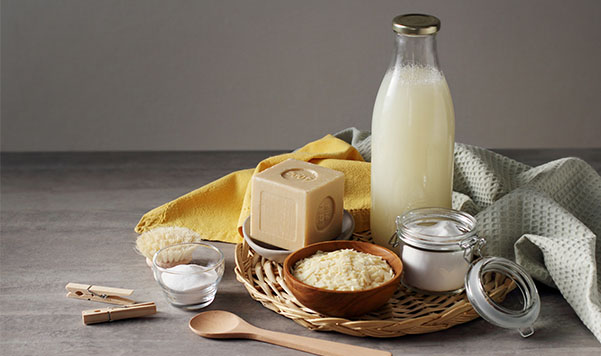
Eco friendly cleaning products
Make your own household cleaners from natural ingredients.
An easy place to start is by making your own household cleaners. This benefits the environment in many different ways, such as using less harsh chemicals, which is also safer around children and pets, and doesn’t end up getting washed into our waterways. It also cuts down on packaging, which ultimately ends up in landfill. Best of all you can find all the ingredients easily at your supermarket.
Here’s a simple recipe for an all purpose household cleaner…
Ingredients
Spray bottle
Small funnel
1/2 cup white vinegar
2 tablespoons baking soda
Tea tree essential oil
Eucalyptus essential oil
Method
Take the top off of an empty spray bottle, place a small funnel into the opening and pour in 1/2 cup of white vinegar.
Add 2 tablespoons of baking soda, and wait for the foaming to subside.
Add in 10 drops each of tea tree and eucalyptus essential oil.
Fill the rest of the bottle with water.
Screw the spray top onto the bottle, and shake well before use.
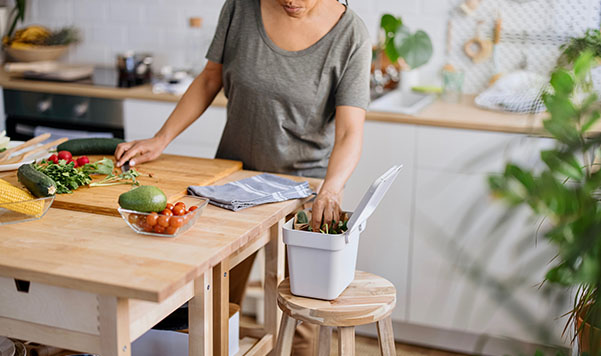
Start your own compost bin
Stop kitchen scraps from ending up in landfill and make your own fertiliser.
The continuous benefits of making your own compost at home are endless! From helping to reduce carbon emissions, to enriching the soil with nutrients, composting is a great way to complete the cycle of by returning what was grown in the soil, to grow even more! It also reduces the need for chemical fertilisers, helps soil to retain moisture and encourages the production of beneficial bacteria in the soil.
The best part about it is that most of your kitchen scraps are able to go in, so you reduce even more waste going into landfill, helping to lowering your carbon footprint even more.
An easy way to get started is by visiting your local hardware store to pick up a DIY kit. Be sure to research what you can and shouldn’t put in to your compost bin before you start.
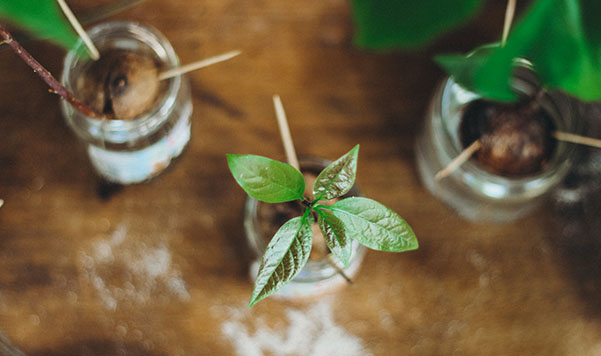
Regrow your own vegetables
Easily grow your own fresh produce for you to enjoy.
If you don’t have the brightest green thumb, but still want to grow your own vegetables, you can! Did you know that some fruit and vegetables like avocados, celery, lettuce and so many others can easily be re-grown using the bulbs or “inedible” parts of the plant.
All you need is some water and a sunny windowsill for them to sit on. Once they’ve grown, you can then transport them into your garden. It’s a fun and easy way to reduce your waste, grown your own fresh produce, and also teach your kids about living sustainably.
An easy example is avocado! Clean the pit well, and then stick three or four toothpicks into it, evenly spaced about one-third of the way down from the pointy end. Sit the pit on a glass or watertight container, so the toothpicks support it on the rim. Add enough water to cover the pit’s bottom half, and refresh water regularly.
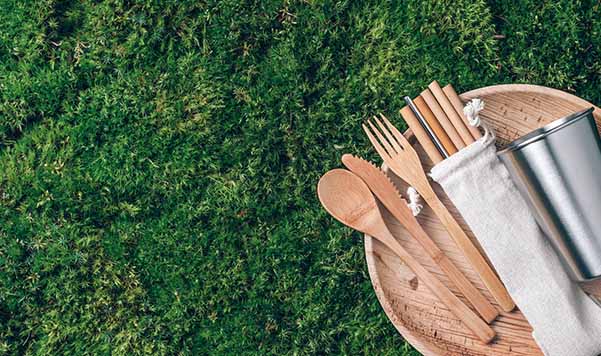
Bring your own, everywhere you go
Help reduce the amount of waste with re-usable drink bottles, cutlery and coffee cups.
It goes without saying that we need to reduce our use of plastic as more single-use products end up in landfill and our waterways, not only causing harm to wildlife, but also taking years to break down and harming the environment.
By eliminating our use of plastic, you can help reduce the amount of waste that goes into landfill, which can start by simply using a re-usable water bottle, coffee cups, straws and cutlery.
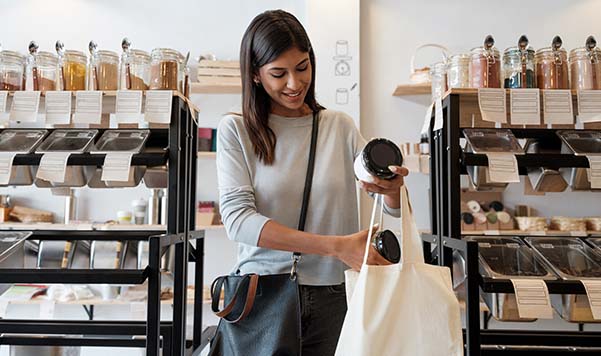
Take your own bags
Reduce the amount of plastic that is being thrown into our environment.
Taking along a re-usable shopping bag each time you go shopping (and not just when you’re shopping for groceries) can help eliminate the need for single use plastic bags. This will help reduce the amount of plastic that is being thrown into our environment.
Don’t forget to also bring along re-usable bags when shopping for fresh fruit and vegetables to put your produce in. Plus, if you can, aim to buy more loose produce instead of fruit and vegetables that already come pre-packaged in plastic and other materials.
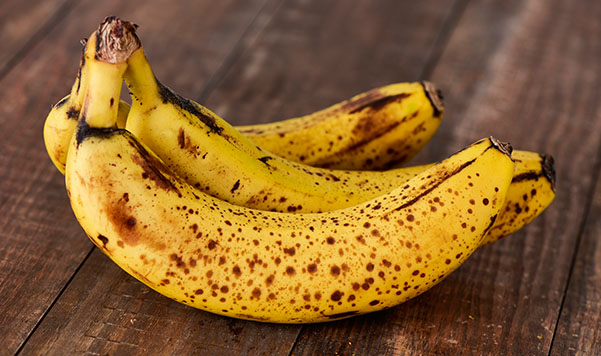
Reduce food waste
Make the most out of fresh produce with these easy recipes.
It might seem like a no-brainer, but billions of dollars worth of food ends up in landfill because we buy too much or aren’t sure what to do with leftovers.
Some simple ways to play your part can be easy as taking a shopping list, storing your food better as well as freezing or using up overripe fruit that you didn’t get to eat in time.
If you find yourself with an abundance of fruit you can always freeze it for later for a smoothie, or use it up in a delicious recipe.
Here’s one for banana bread:
Ingredients
1 cup (150g) plain flour
1/2 cup (75g) self-raising flour
1 cup brown sugar
1 tsp Cinnamon Ground
125g butter, melted, cooled
2 eggs, whisked
3 ripe bananas, mashed
Method
Preheat oven to 180°C. Grease and line the base and side of an 11 x 21cm x 6cm deep (base) loaf pan.
Combine flours, sugar and cinnamon in a large bowl. Whisk butter and eggs together. Stir in banana. Spoon into prepared pan. Smooth the surface.
Bake for 45-50 mins or until a skewer inserted into the centre comes out clean. Set aside in the pan for 10 mins before turning out onto a wire rack. Serve warm spread with butter.
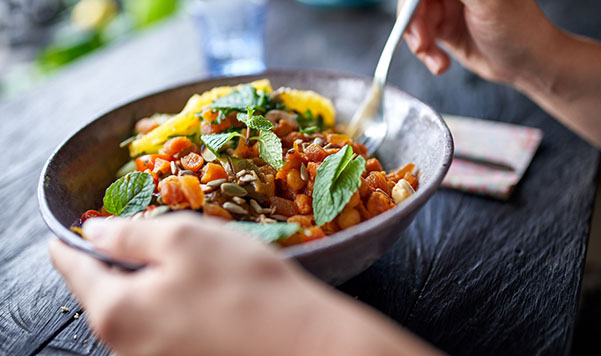
Incorporate more plant based foods in your meals
Get more veggies and legumes in your diet.
The health benefits from eating less meat, and incorporating more vegetables and legumes are endless. It helps to reduce the risk of chronic diseases such as diabetes, heart disease, as well as helping to maintain a healthy body weight, all whilst lowering your carbon footprint, as less resources are used to grow fresh produce.
There’s a variety of delicious recipes to help you introduce more vegetables and legumes in your diet. You can easily start by using more plant based milks in your diet, or even trying this delicious recipe for lunch or dinner:
Ingredients
400g can chickpeas, drained and rinsed
small pack coriander, roughly chopped
small pack parsley, roughly chopped
1 red onion, thinly sliced
2 large tomatoes, chopped
2 tbsp olive oil
2 tbsp harissa
1 lemon, juiced
Method
Mix all the ingredients together, mashing a little so the chickpeas are a bit rough round the edges – this helps absorb the dressing. (Can be made a day ahead and kept in the fridge.)
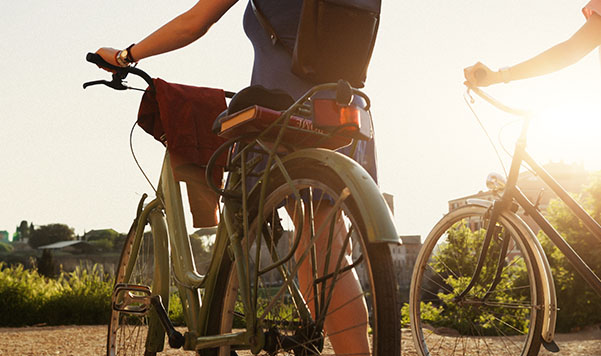
Leave the car at home and get moving
Get some extra steps in.
Did you know that if you reduce your driving by even just 10% you’ll make a positive impact. Not only will you be reducing greenhouse gas emissions and air pollution, but you’ll also have a positive impact on your health and others, whilst saving money too!
Instead of driving try:
Walking, biking, or catching public transport to school, work, or while running errands
Share a ride with friends or colleagues
Avoid unnecessary driving – phone ahead to confirm store hours or product availability.
We hope that these tips have inspired you and your family to try and be more conscious of the environment and ultimately live more sustainably! We’d love to know if you give these tips a go, or if you have any ideas that you already practice at home. Be sure to share them with us on Facebook and Instagram by tagging Mayfair Village as we would love to learn about them.
